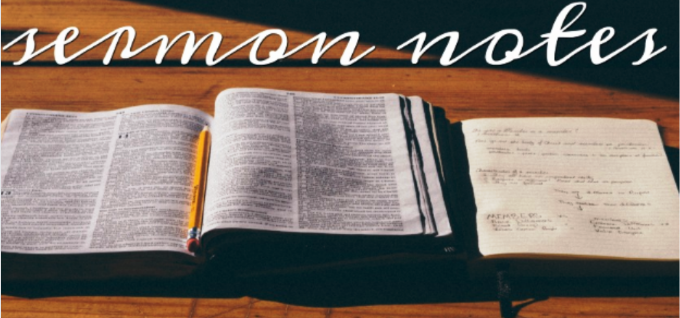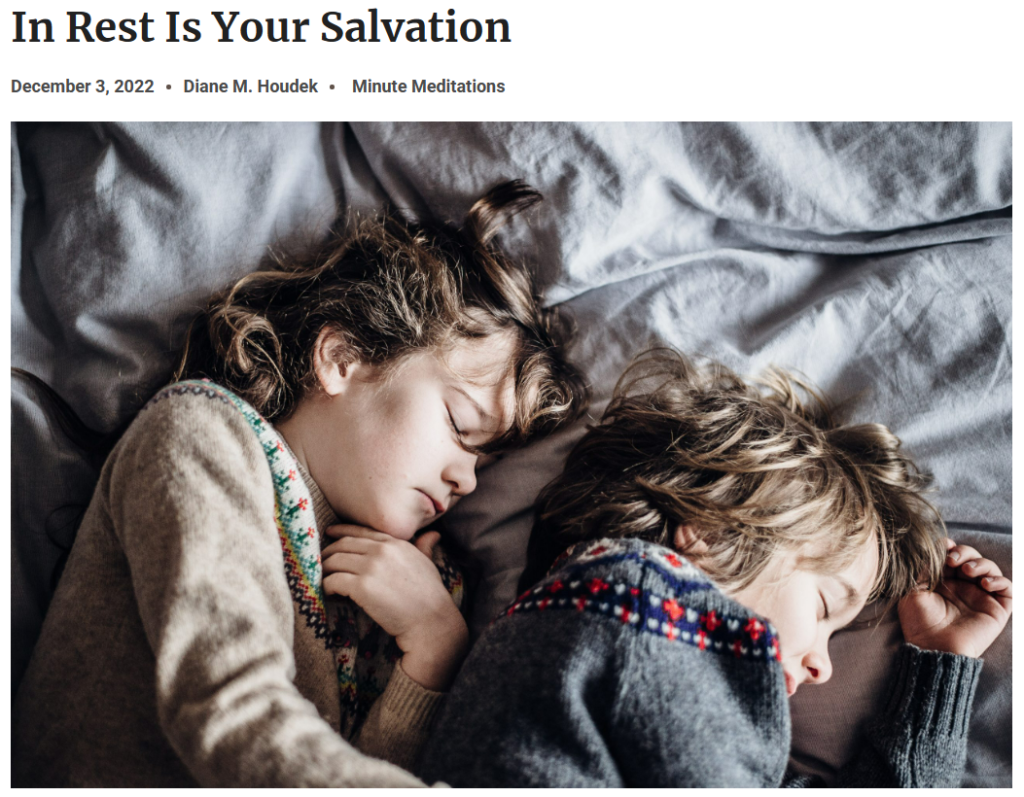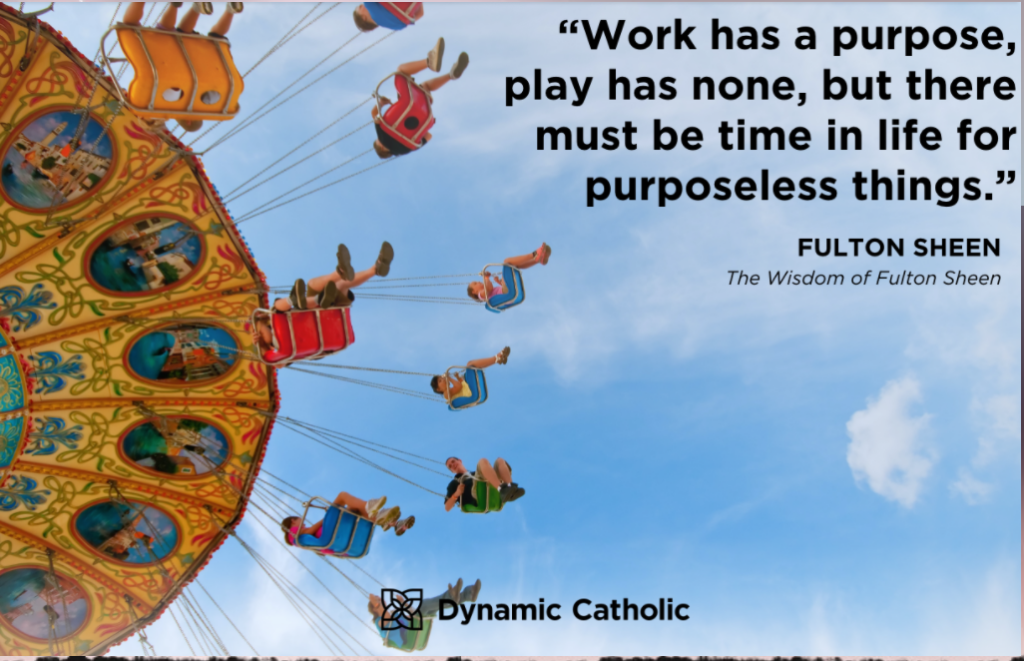
To Do Today . . .


416 N 2nd St, Albemarle, NC, 28001 | (704) 982-2910


Looking for Love in All the Wrong Places
Father Peter Fitzgibbons
July 1 – 2, 2023
Gospel: Matthew 10:37-42
When I prepare couples for marriage, I don’t ask them if they have learned how to talk to one another. No . . . I’m not Doctor Phil. I wanted to be Doctor House, but I’m definitely not Doctor Phil. The whole basis of marriage, a vocation, is love of God. Be holy and perfect and all things will be given to you. Our Lord tells us being holy is first and foremost because you cannot give what you do not have. When we are united with the Source of love, we can give that love to others. All love comes from the Father because He is love itself. And that is what I tell couples. If you want to have a marriage that lasts and survives the rotten times, be holy. However, good times can be rotten too, and you should be wary of them.
I also tell couples to pray the Rosary together every night. “Father, what if they are not Catholic?” Well, the good news is that they are praying the Rosary. The bad news is that it ain’t going to hurt a bit. There is no downside. If you pray the Rosary together, you can talk to each other about anything. I got that from Bishop Sheen by the way. I’m not that bright. You need to be united to the Source of life. “But Father, you are not married.” I could not do that to a woman although my brother did, and he had a Mensa card.
Each vocation is manifested in love to the Sacred Body of Christ – the Church. In my 39 years of priesthood, I have seen so many priests and religious leave the vocation because they do not, and will not, give themselves totally to God. “My work is my prayer.” No, it’s not. Those are two different words. I know because I went to Catholic school. They are spelled differently and mean different things. Both can be acts of love, but you cannot give what you do not have. So, you must return to and be united with the Source of love. Remember, in Scripture, Christ said, “Come away and spend time with God.” The religious and priests become disheartened, and they leave. They go looking for love in all the wrong places. They look for love in people, places, and things. Some do come back, which is tough because they don’t want to admit their mistakes. But that Love they once touched won’t give up and follows them. The faithful are united with the source of God’s love and seek Him by immersing themselves in His love through the Sacraments. This is where we get the strength to do what God asks of us – to do corporal and spiritual works of mercy.
We always like it when people thank us for our good works, but most people don’t. “Well, Father, you do good works.” I hope so; I’m going to be judged on that. “So, people must thank you a lot.” No, not really. I’ve performed a lot of funerals and weddings and did not even get a thank you note. Doing weddings is like negotiating with terrorists. They come in with a list of nonnegotiable demands. This is my Church, and I appreciate your desire to have your wedding here, but we don’t do that here. “Well, father so and so does it.” That’s nice. Here are the rules straight from the Church’s rulebook. Many people don’t say “thank you.” Although we do it for Christ, I would love to get a “thank you” especially for the staff here who work so hard.
Our feelings get hurt when people don’t say “thank you” and appreciate the enormity of our stooping down from our greatness to help them. However, we humbly do it for Christ, and people see Christ in our human natures. It’s tough sometimes. Because you are hurt, you really want to say some good old Anglo-Saxon words that shouldn’t be used in polite company. But Christ says, “You gave a gift of love to Me, and I will repay you according to My nature.” So do not worry about it. Bring Me your sorrows. Bring Me your rejections. Bring Me your feelings of being unappreciated. Bring them to Me and stay awhile. You will learn how unappreciated I am for My gift of love. I offer Myself to the world in the Blessed Sacraments and look at how few show up. Look at how few say, “thank you.” People haven’t finished singing my praises and they begin leaving the church. Whoa! Did I dismiss you? No! They can’t wait to leave even though there’s not much going on in Albemarle at 10:30 in the morning.
Once I had a funeral here, and it was on a day like this. After the funeral, we got into the car to drive to the cemetery. We drove at a funeral pace, so we were not traveling very fast. I had the robes on, and I was very thirsty. But when you are in a hearse and in a funeral procession, you really can’t ask the driver to stop at a gas station so you can grab a Coke. That would be in poor taste and really frowned upon. I got to the church – and it was a beautiful church – if you don’t know where it is, you’ll never find it. It’s up over a hill and back. I got out of the hearse and began walking to the grave site. And there was this big, old man in bib overalls coming toward me with a cup in his hand. He said, “I thought you might like this.” It was a cup of ice-cold water. He is now resting with his family in the back of the church grounds. It was such a great act of love. How he knew that I would need it or if it was a simple act of courtesy and kindness, I don’t know. He did not know me, and I did not know him. As I talked to him, I realized that he was related to some of the parishioners here. But such as that. Always remember, when we do things for others, we are doing them for Christ.
Father’s Reflections . . . I looked at the calendar today, and I was reminded that 21 years ago I received an interesting letter. Know who it was from? The AARP. Know what made it so interesting? They sent it to me while I was in Iraq. So, we have geriatrics protecting our country. Great!
How will you apply this message to your life? ________________________________________
You can read all of Father Fitzgibbons’ sermons by going to annunciationcatholicalbemarle.com and clicking on “Blog” then “Categories” then “Sermon Notes.” On a cell phone: click on “Blog” and then “Menu.” Scroll to the bottom and click on “Categories.” Sermon Notes are also available on the church Facebook page at ola.catholic.church. Click on “Groups” and then “Sermon Notes.”


We don’t know how to rest and relax anymore. Picture an overtired toddler fighting a much-needed nap. This is a good image for many of us as we push ourselves through days filled with too much activity and too much stress. Part of the problem is that too often the work we do takes place mostly in our brains and on our computers. We are mentally but not physically tired. People who work in physically demanding jobs perhaps have a better awareness of the body’s need for rest. I think my parents and grandparents were much better than I am at balancing work and rest. But this isn’t solely a twenty-first-century phenomenon. As far back as the beginning of the Hebrew Scriptures, God had to command one day of rest for the Chosen People. Left to ourselves, like toddlers we will keep going until we drop in our tracks. One of my favorite quotes from Isaiah talks about how quiet trust and rest will lead to salvation. It wasn’t until I found the quote in its full context that I understood how much we resist the very thing we most need: For thus said the Lord God, the Holy One of Israel: In returning and rest you shall be saved; in quietness and in trust shall be your strength. But you refused and said, “No! We will flee upon horses”— therefore you shall flee!—Isaiah 30:15–16 We rely a great deal—probably too much—on our own efforts. We become convinced that we’re indispensable and irreplaceable. We don’t realize that it’s OK to ask for help—or at least allow ourselves to take a day off and return to the task with renewed energy.
— from the book Simple Gifts: Daily Reflections for Advent
by Diane M. Houdek

Sustaining them in these trials was the work of prayer. To such communities the church entrusted the “office” of praying the liturgy of the hours. The day—and night—was punctuated by formal prayer. In this way hymns, psalms, and prayers—recited or sung—would continually rise from earth to heaven. In this way the glory of God never ceased to be celebrated and the needs of humankind never ceased to be a source of trusting petitions. If those first sisters did, indeed, count the insults and privations as “great delights” what would explain such joy but the exaltation that flows from a love that “surpasses understanding.”
It was through the daily cycle of prayer that such “blessed assurance” grew in them. The rounds of hours of the breviary brought the richness of psalms and Scripture texts into dialogue with their daily tasks. Meditation upon the Byzantine Cross, the adoration of the Eucharist, attending Mass, hearing sermons—all gave new meaning to each day’s trials or triumphs. Weaving prayer and productive work created the balance within their hearts and minds that allowed them to keep moving. The poor sisters lived filled with consolation, with assurance. They dared to believe that promise of Jesus. They were learning that he was true to his word and their joy was, indeed, full and free. They learned to reverse their own standards of judgment in favor of the riddle that calls one to lose life in order to gain it. That women could live without the safety net of approved monastic vows and ample endowments and follow Christ in such literal fashion was news indeed. And the women themselves were the first to understand that.
— from the book Light of Assisi: The Story of Saint Clare
by Margaret Carney, OSF


There surely is a world of difference between the prayer of action and that of silence or word. Here it is not by listening and responding, not by diving down into silence, but by acting, by doing, that I communicate with God. Whatever I can do lovingly can become prayer of action. Nor is it necessary that I explicitly think of God while working or playing. Sometimes this would hardly be possible. While proofreading a manuscript, I better keep my mind on the text, not on God. If my mind is torn between the two, the typos will slip through like little fish through a torn net. God will be present precisely in the loving attention I give to the work entrusted to me. By giving myself fully and lovingly to that work, I give myself fully to God. This happens not only in work but also in play, say, in bird-watching or in watching a good movie. God must be enjoying it in me, when I am enjoying it in God. Is not this communion the essence of praying?
— from the book The Way of Silence: Engaging the Sacred in Daily Life by Brother David Steindl-Rast

It is in work that we find the test of our relationship to the creation because work is the question of how we will use the creation. For Wendeell Berry, work done well brings us into a wholeness and cooperation with the creation in which we can find health. Bad work destroys the connections that make life possible. For Berry good work is like a prayer—it is an act of both gratitude and return. Good work accepts the gifts of creation and uses those gifts to further their givenness. There are seeds that lie for decades in the soil, waiting for the right conditions before springing to life. Good work is that which creates the conditions for such life to burst forth from the whole of the creation.
— from the book Wendell Berry and the Given Life by Ragan Sutterfield
//Franciscan Media//